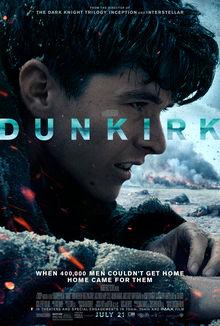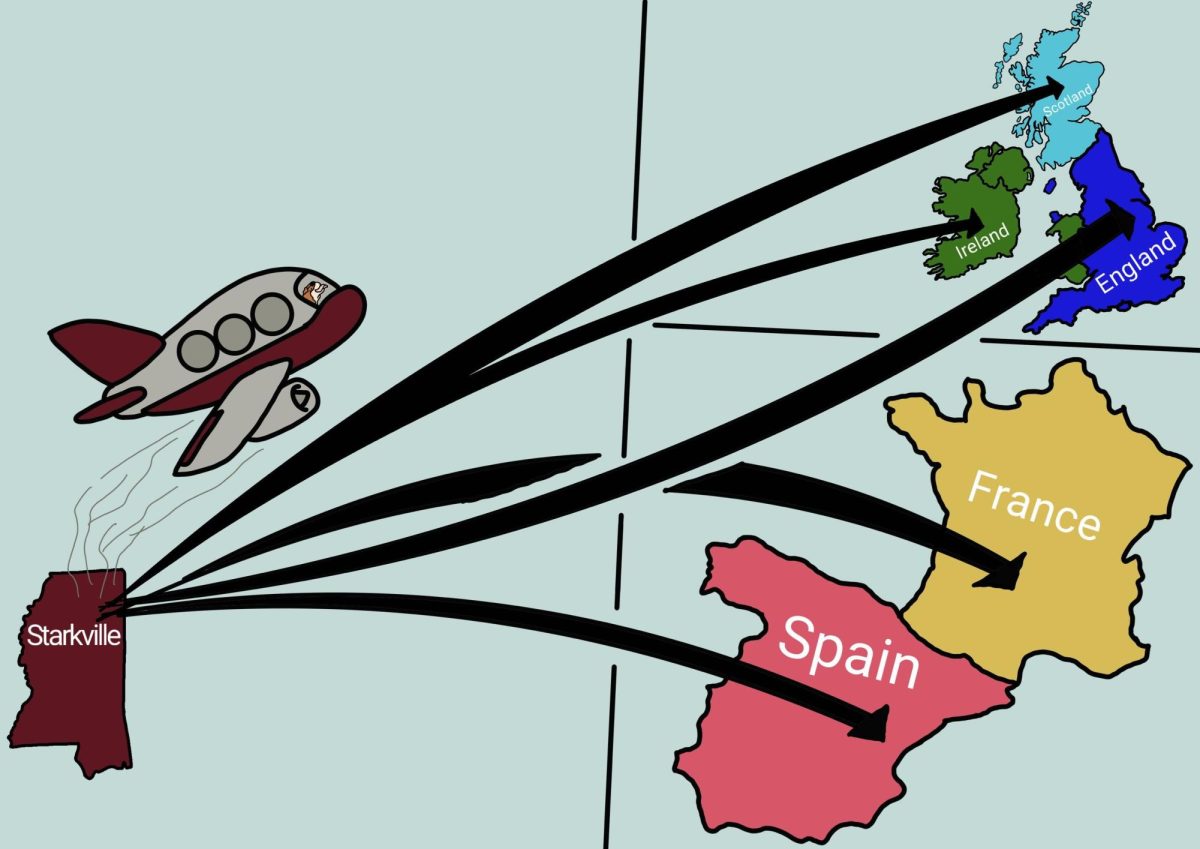Before I jump in and start talking about “Dunkirk” I want to make it clear this is going to contain spoilers. Pretend as if we have just walked out of the theater and are discussing all the intricate details of the film on the drive home.
It has been a little over 24 hours since I walked out of Dunkirk and my opinions on the movie have definitely changed. I originally walked out feeling almost let down.
Christopher Nolan is my favorite director. I have loved every movie he has done, even analyzing them at a philosophical level. In that, I have come to expect certain things from Nolan and, to be honest, “Dunkirk” was not what I was expecting.
I sat down in my first ever IMAX theater expecting a character driven war epic where Nolan concentrates on some overarching theme of humanity, like he does in “Inception” or “Interstellar.”
Instead, I was treated to a film that was not character driven and did not deal with any of the big ideas I expected Nolan to tackle in a World War II setting. I was given a film of a different kind. One that instead of focusing on any specific character, focuses on the situation at large.
So let us get into this film a little because it is very different from any war films I’ve seen. With any war film, you expect action, and this film is no exception. Nolan gives us some of the tensest and engaging action pieces I have seen in a while. From the moment the movie begins you are fully engaged until the very end.
There are two notes I would like to make on this point, the first is that the action is not over the top. This really shows itself in the dogfights. There is never a point where a plane gets taken down in typical Hollywood fashion. If your scale has Top Gun on the far right, Nolan takes “Dunkirk” as far left as he can, which was actually refreshing. Whenever a plane was shot down, there would be a smoke trail and the plane would slowly descend, crashing into the ocean. There was never a point where I felt like Michael Bay had taken over the film with his signature explosions. Everything felt real, and it was more engaging because of it.
The second note is how Nolan makes you care about the action. This is a concept me and my roommate talk about all the time. In order to make the audience engaged in the action, you first have to make the audience care about the characters.
By making the characters the focus point, it is much easier to get invested in the fight. Suddenly there is a sense of tension and urgency to any action when the character is put first. What if our hero dies, or gets injured in some way? Without any sense of character, you are just left with some explosions and people throwing fists at one another. Sure there could be a cool flip thrown in there somewhere, but any good action piece should be designed around the character to further the story.
Like I mentioned earlier, this movie isn’t character driven. We hardly get any backstory for the characters at all, so it is hard to care about the characters to begin with.
What Nolan decides to do instead is focus on the situation as a whole and immerse you in that situation. By making you feel like you are really there, suddenly you feel the tension and the fear the soldiers felt.
Spoiler alert: it totally works. You are fully engaged in “Dunkirk” from start to finish.
So how does Nolan immerse you in this film? The two biggest devices that stuck out to me where both Hams Zimmer’s soundtrack and the sound design of the movie.
Zimmer is a master, and once again knocks it out of the park with “Dunkirk.” This time he decides to take a different approach to the soundtrack than his work in the past.
Instead of a huge, epic, melodic masterpiece (such as “Inception” or “Interstellar”), he decides to make his score almost a part of the sound design itself. By doing this he is able to build dramatic tension with his score which keeps us incredibly engaged in the film.
Don’t worry, there are a few points in the movie where Zimmer decides to let loose and it is masterful. And because of the juxtaposition from the rest of the soundtrack, it adds even more emphasis when Zimmer does decide to give us his melodic score.
The sound design and editing in this film are incredibly immersive.
Quick refresher: sound design is the actual building of the sounds themselves, sound editing is how you hear each sound in relation to everything else.
I have seen plenty of comments on how this might be the loudest film ever made, and while this may be true, it totally works in the film’s favor.
The scene where the group of soldiers hunkers down in the bottom of a boat in enemy territory is an incredible example of this. I jumped at every single bullet fired into the hull of that ship, just like the soldiers did. Every time I would hear the screech of a German plane diving towards the soldiers, my heart would start to race. The sounds in “Dunkirk” are thrilling, engaging and terrifying all at the same time.
Another way Nolan entraps you in this film is with the cinematography. This movie is beautiful. There are countless shots I would love to print out and put on my wall. I would not be surprised if we see an Oscar nomination here in the future. A big part of the power of the film’s cinematography is the lack of noticeable CGI. Everything looked real. There was not a single aspect of the film I thought looked fake or out of place.
There are two shots in the film that really stood out to me. The first is early in the film out at sea, when Mr. Dawson’s boat passes by a battleship full of soldiers already rescued from the beach. It is a long, wide shot from the side of the ship as they pass each other. Nobody says a word, as you watch all the soldiers crowded on the ship, watching this little boat move towards their version of hell. It is haunting.
The second shot is one of the last of the film. Tom Hardy’s spitfire gliding over the beach as you get an overview of the beach and city of Dunkirk. It is gorgeous.
This brings me to how Nolan decides to structure the story. We’ve seen in previous films, (“Memento,” “The Prestige,” “Inception”) that Nolan is a master of non-linear editing. He uses that same technique to great effect in this movie. One of my friends pointed out that they were afraid that most of the movie would be waiting around for the ships to get there, which definitely could have been boring. Nolan expertly avoids that by telling the story this way.
Lastly, there are the characters themselves. Like I said earlier, there is not much backstory given to anyone except Mr. Dawson and the two boys, which I think is an interesting decision. Out of all the characters in the film, the ones who get the most backstory are the civilians. This has to be intentional, Nolan is way too smart to just let this detail slip by.
So I started asking myself, why? Well, like I said earlier, Nolan is much more interested in investing us in the situation than he is in any individual character. By giving these civilians the most to do, we separate them and the soldiers into two groups. By doing this, we lump all of the soldiers into one pile and make us care about them as a whole unit, rather than an individual.
What really keyed me into this is the fact that Cillian Murphy’s character does not get a name. He is only referred to in the credits as the “Shivering Solider.” Remember, there are 300,000 soldiers on this beach. Nolan is trying to get us to see the magnitude of this situation, by not giving us any one soldier to really latch onto.
This is also where we really start to see the theme of the film: sacrifice. (Credit to my father for really picking up on this thread running through the film.) There is no better picture of this than Mr. Dawson leaving his home and putting his life and lives of his son and the boy on the line to save the soldiers.
Some other minor notes. Acting across the board is amazing. Tom Hardy is excellent, Mark Rylance is as well. Even Harry Styles impressed me. Nolan does an amazing job of showing and not telling throughout the film.
If I had any criticism about the film, it would be that I did not feel a real sense of urgency from the Germans outside the city.
Overall I think this movie is fantastic. Once I stepped back and looked at the film for what it is, rather than what I was expecting it to be, I would easily put it in my top three films of the year so far. I am very excited to see what Nolan does next.
Contact Collin Smith at [email protected] and follow him on Twitter.
Spoiler Talk: ‘Dunkirk’





















































































